Inside: Why is kindness important? Kids should be kind for these 6 reasons which will help you explain it to them so they are motivated to be kind.
Why? Why? Why?
Our kids ask us why dozens of time a day.
If they’re between the ages of 3-6 that number probably quintuples.
Kids-and adults- want to know the why behind everything because when they understand, they feel more in control of the world around them.
Why do I have to wear a helmet when my friends don’t? (to protect your brain and your brain is what makes you who you are)
Why do I have to go to bed right now? (you grow when you sleep and you want to be tall, right?)
Why do I have to pick up my wet towel off the floor? (you’ll ruin the floor and your towel will get stinky)
There are so many ‘why’s’… and when I have the time and the patience, I try to give them a reasonable answer.
Because once they understand the importance of the action I’m requesting of them, kids have more “buy-in” and are more motivated and are willing to do it without complaining.
Related: Why Should Educators Teach SEL
And this is true when we ask our kids to be kind. We can tell them to speak and act with kindness and for some kids, that’s enough.
But for many kids, we need to explain to them the why behind kindness.
- Why should we be kind?
- Why should we treat other people well?
- Why does being kind to others really matter?
And these are hard questions to answer when you’re on the spot. So we’ve gathered all the reasons why kindness is important and how to explain it to kids so it makes sense to them.
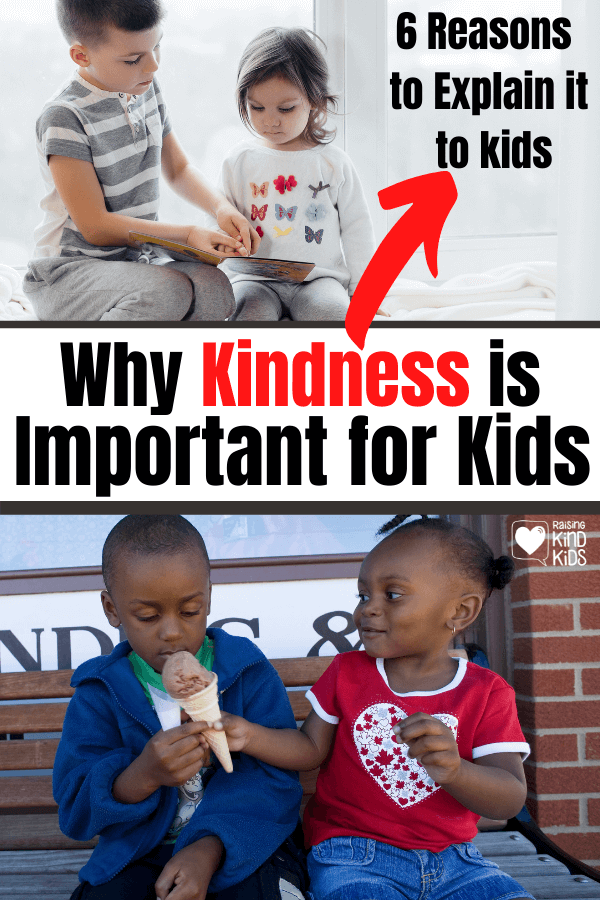
6 Reasons to Answer: Why Is Kindness Important?
There are tons of reasons to be kind to others and we’re sharing the top 6 with you.
Now, none of these 5 reasons are more important than the others. But they are in order from most self-absorbed/self-centered to least self-focused.
Since kids are me-centered and their brains aren’t yet wired to think of others, we have to start with the reasons that make the most sense to them. Namely, answering the age-old question: What’s in it for them?
Related: How to Teach Kids Compassion and to Think Of Others
Not all of these reasons will make sense to your kids right now.
So choose the reason(s) that will resonate the most for now and as they grow, mature, and build up their emotional intelligence, the other reasons will start to become make more of an impact. Most young children need to hear reason 1 and won’t be ready for other reasons until they’re older.
1. It Feels Good to be Kind.
When we are kind, we feel good.
These happy hormones are natural drugs, and like most drugs, are addictive. When we feel happy because of a surge in natural oxytocin, dopamine, and serotonin, we instinctively want to do more things to feel happy more often.
So kids have the power to change their mood and change their feelings by choosing to act with kindness. Because when we tie the emotion to the action, they’ll start to connect the two together, will want to replicate those emotions, and kids will want to be kind more often.
Try it Now: The next time your kids speak or act in a kind way, ask them how it felt: How did it feel to help your sister? You helped your brother tie his shoe…how did it feel to be so helpful?
Of if they need help labeling their emotions, you can say, “You were so kind to your sister when you let her choose first. You must feel proud of yourself.” “You took turns on the swing. You must feel happy you were able to let someone else have a turn.”
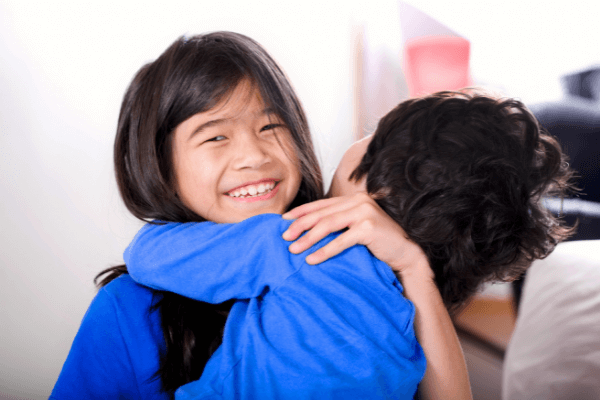
2. If we’re Kind, People Want to Be Around Us
When we treat others well, they feel good. When they feel good when they’re with us, they’ll want to be with us more.
When we don’t treat others well, they’ll feel sad, mad, angry or frustrated. When they don’t feel good after they’ve spend time with us, they will be reluctant or resistant to spend time with us in the future.
So when we are kind, other people will want to be around us more, which is a great feeling.
For young kids, this is a simple cause-and-effect relationship may take years to fully understand: All actions have consequences (either positive or negative or neutral).
When they take turns and are kind, and listen to “stop” and “no,” share, are helpful and are generous, their siblings, friends, classmates, teammates and neighborhood friends will want to play and hang out with them.
On the flip side, when they are unkind, tease, don’t listen, are rude, take things without asking, don’t follow the rules of the game/sport, then their siblings, friends, classmates, teammates and neighborhood friends won’t want to play with them anymore.
Try it Now: Ask them what happened right before their sibling or friend said, “I don’t want to play with you anymore.” What did you do or say that caused them to say it (the effect)? What could you do or say differently that would change the effect?
Disclaimer: Some kids will not want to play with your kids and that’s okay. This is to help them see how their behavior towards friends and siblings can change how that person then reacts to them.
You can show them using this (download it below):
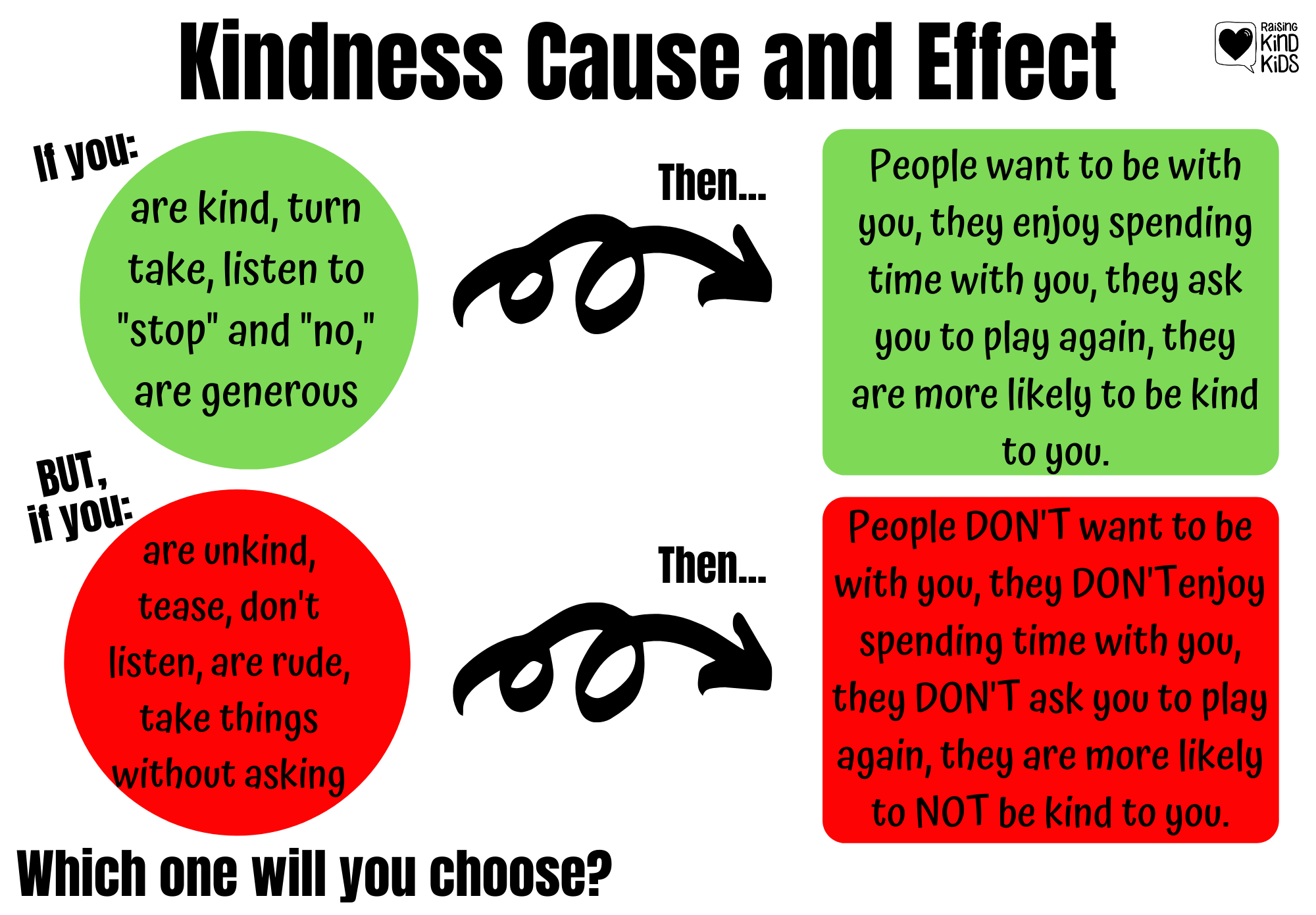
3. If We’re Kind, Kindness Will Come Back to Us
Whether you call it karma or The Secret, good will come back to us when we do good.
Eventually- and it might take years–what goes around comes around. Kindness is often rewarded by the universe (or an adult who sees your kindness and wants to “reward” the kindness).
This is different than being nice and specifically looking for something in return for your niceness. Nice guys often do finish last because their motivation for being nice is misguided and they want a “return on their niceness.”
Related: The difference between nice and kind and why we don’t want to raise nice kids
Try This Now: We don’t want our kids to need a reward for being kind. But when we’re trying to make kindness a habit, we can use positive reinforcement to encourage the behaviors we want to continue. When our kids are kind, offer verbal praise or a physical treat to “reward” their actions: “You were so sweet with your classmates, let’s go get a sweet treat to celebrate what a kind kid you are.” Or “You were so helpful in the kitchen tonight after dinner. Can I help you with your chores so you can be done sooner?”
4. Acting with Kindness Shows Others How to Treat Us
How we treat other people is a way of showing them how we want them to treat us.
When we bring our sister a drink when we get one, we show her that when she gets a drink for herself we want one too. Now, this doesn’t happen overnight. We might get our sister a drink and she won’t get us one. But eventually, if we set the expectation that we get each other drinks she’ll catch on. In the meantime, we’ll be kind because of reason 4.
When we speak kindly to others and don’t take things without asking and we knock before entering and we greet each other, we are passively, but effectively showing people how we expect to be treated by them.
Try this Now: Remind your kids that being kind isn’t dependent on how other people treat us. We don’t need them to reciprocate or even thank us for our kindness to have been “worth it.”
But we can do a little social experiment. Every time you get a treat for yourself, get one for your sibling. In your head, count how many times you do it and see how many times it takes them to treat you with the same kindness. It might be right away, it might not be for a while. They might even try to say something like: “I get you a treat when I get one. Can you please get me a treat the next time you get one?”
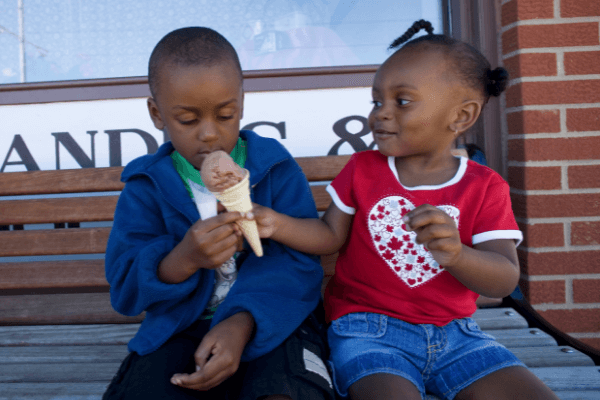
5. Kindness Will Bring Us Inner Peace
When we want to be kind and then we are kind in real life, we live a life of integrity: doing what we say we will do. Some people call this living congruently, or living in harmony, agreement, or alignment, with who we think we are.
When who we think we are and how we think about ourselves line up with how we act and interact with others, we will feel at peace with ourselves.
And when we think highly of ourselves and like who we are and we act to prove we have a “right” to feel this way about ourselves, it helps improve our mental health, builds our confidence, and our increases our self-respect.
Try this Now: We need to do what we say we’re going to do in order to feel good about ourselves and who we are. If we say we’re an artist, we have to create art. If we say we are responsible, we have to act responsibly. If we say we’re an athlete, we have to keep trying our sport even if we’re not able to do it right away. If we say we are kind, we have to then be kind.
6. Being Kind Helps Others
When we are kind, we add value to the people around us.
We make their life easier or we make it better or we make their day more enjoyable.
Our kindness shows them they are valued, they are wanted, they are welcomed, and we like them for who they are when we do even the simplest acts of kindness:
- A smile or saying “hi” to someone
- asking if you can change the song before you change it
- picking up something someone dropped
- holding the door open
- letting someone else go first
- asking if anyone needs anything when you get yourself something from the kitchen
- helping someone who is hurt or upset
- staying to the right to others can pass
Try it Now: Encourage your kids to try and help someone today. You can use our Monthly Kindness Challenge or our Kindness Scavenger Hunt or our 365 Days of Kindness Calendar to give them ideas of how to be kind.
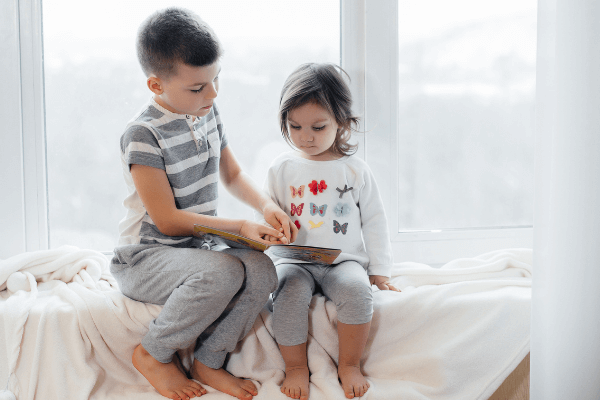
7. Kindness Changes the World
Kindness is contagious.
When one person is kind, the person who received the kindness tends to turn around and be kind to someone else. And the ripple effect continues to the next person and so on.
One kind act, no matter how small, can change the world because it encourages others to act with kindness as well. And maybe it won’t change the whole world, but it will change our immediate world: our family, our classroom, our school, and our community.
Try it Now: This one is tricky to prove because we may never see the results of our kindness…the ripple effect may happen long after we’ve left. But you can try to perform a larger “showeir” random act of kindness like these and then watch for people’s reactions.
The best way to illustrate this is to share the Pay it Forward book or the 2000 Pay it Foward movie so kids can see a fictional example of how it works.
You could also read One Drop of Kindness
When we know the why behind anything we’re much more likely to do it. So let’s explain to as many kids as possible why it’s important to be kind so there will be more kid kindness in the world.
Download the Kindness Cause and Effect here to help explain it to kids.

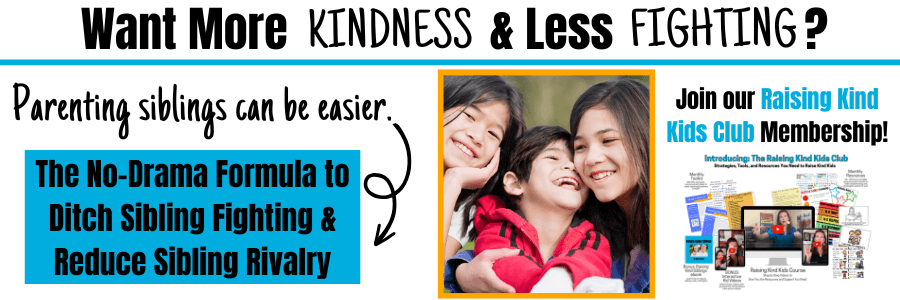
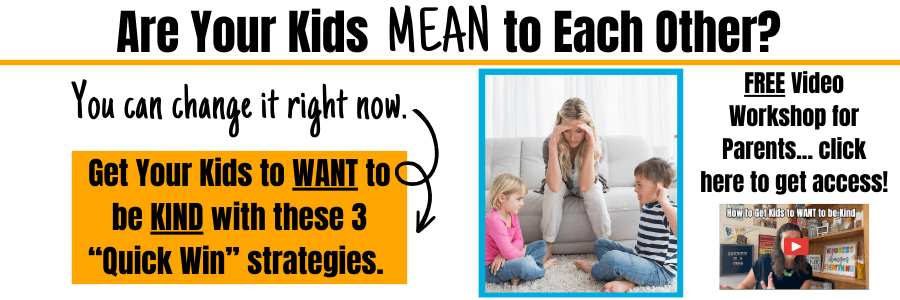



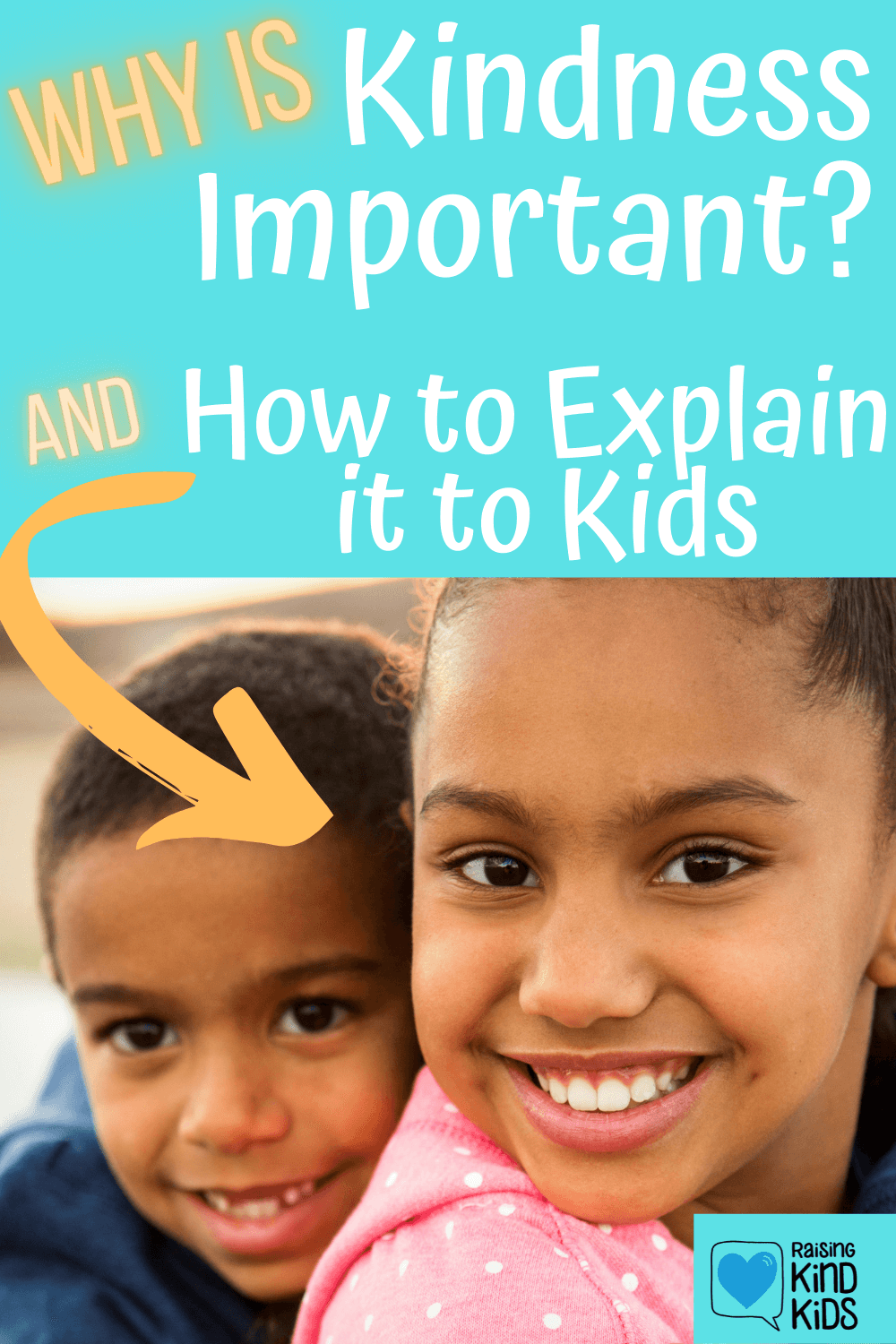
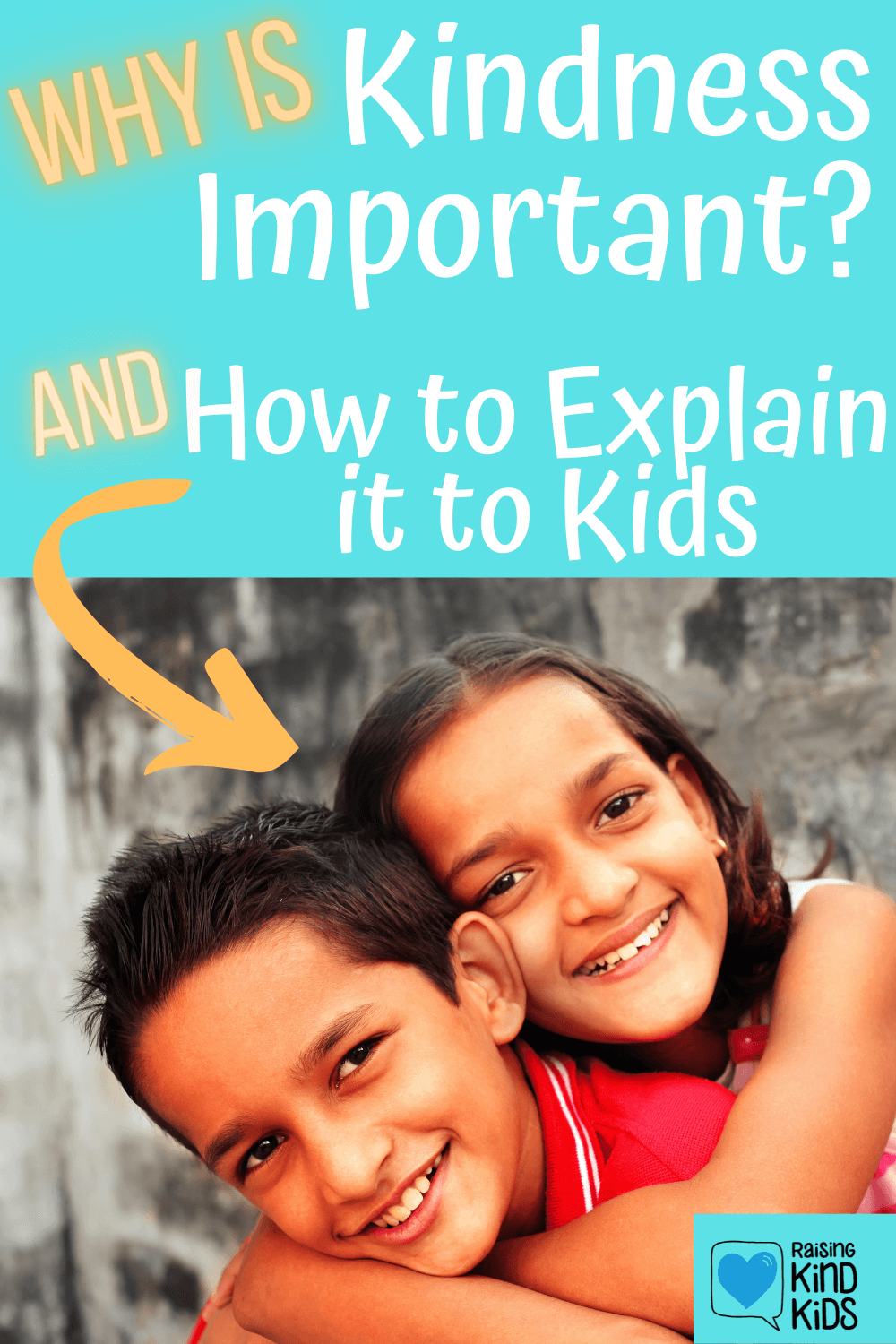
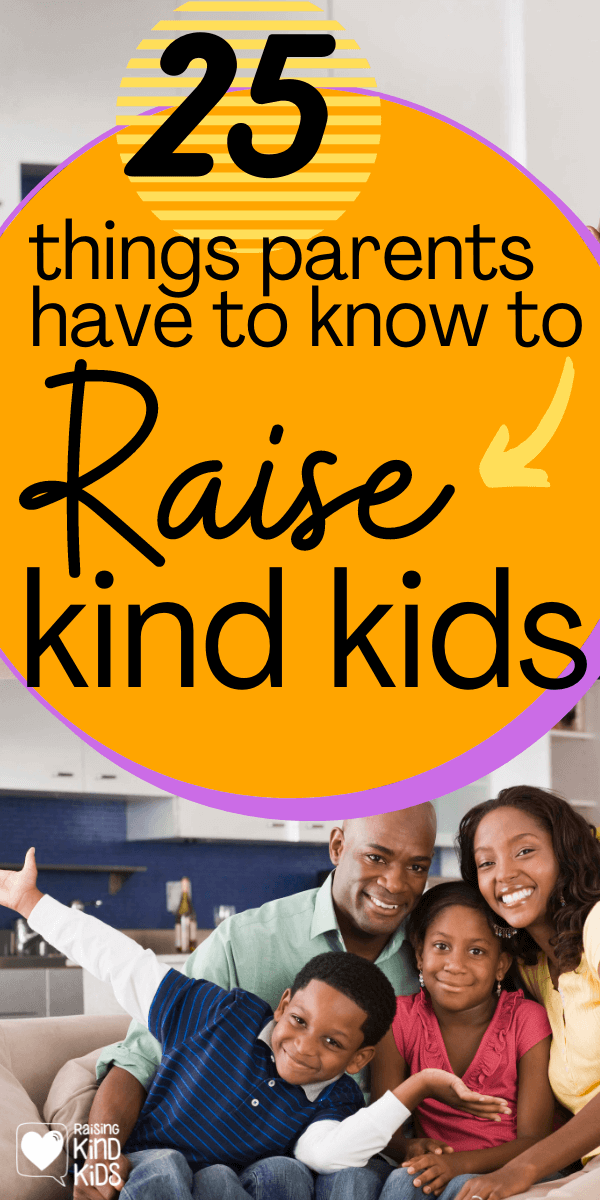
Leave a Reply